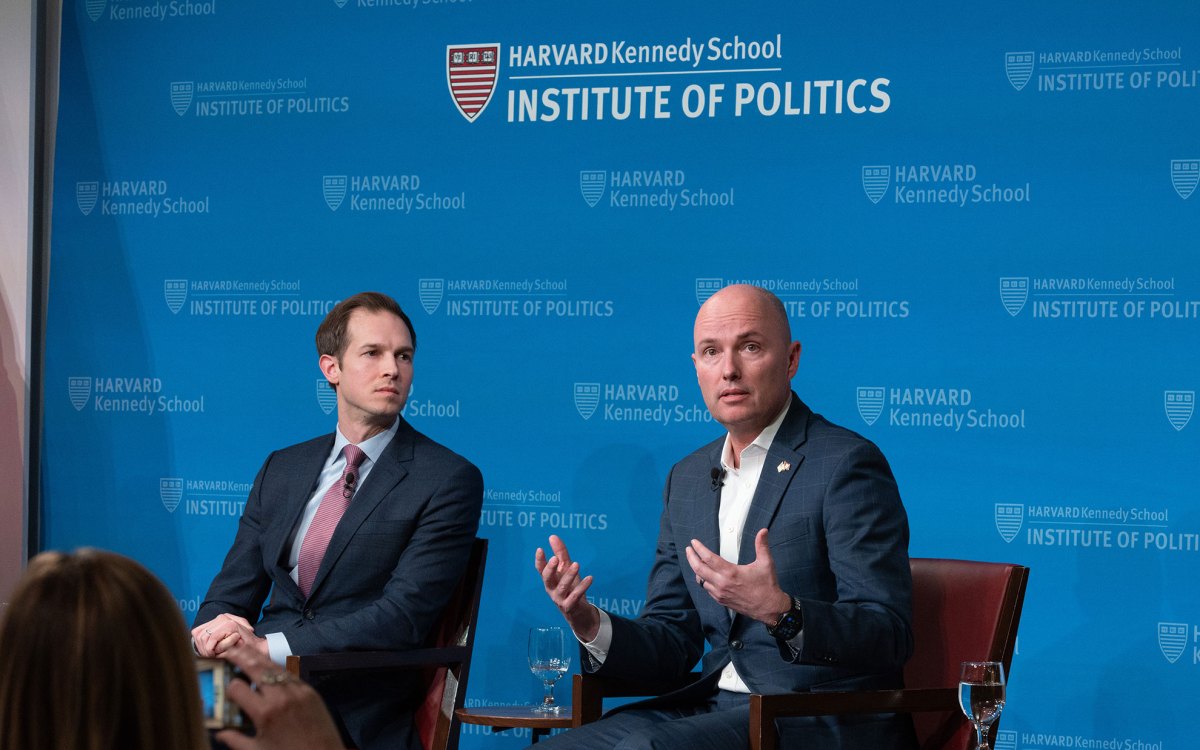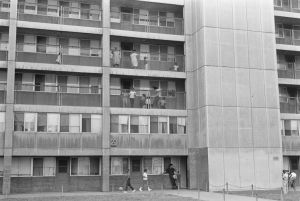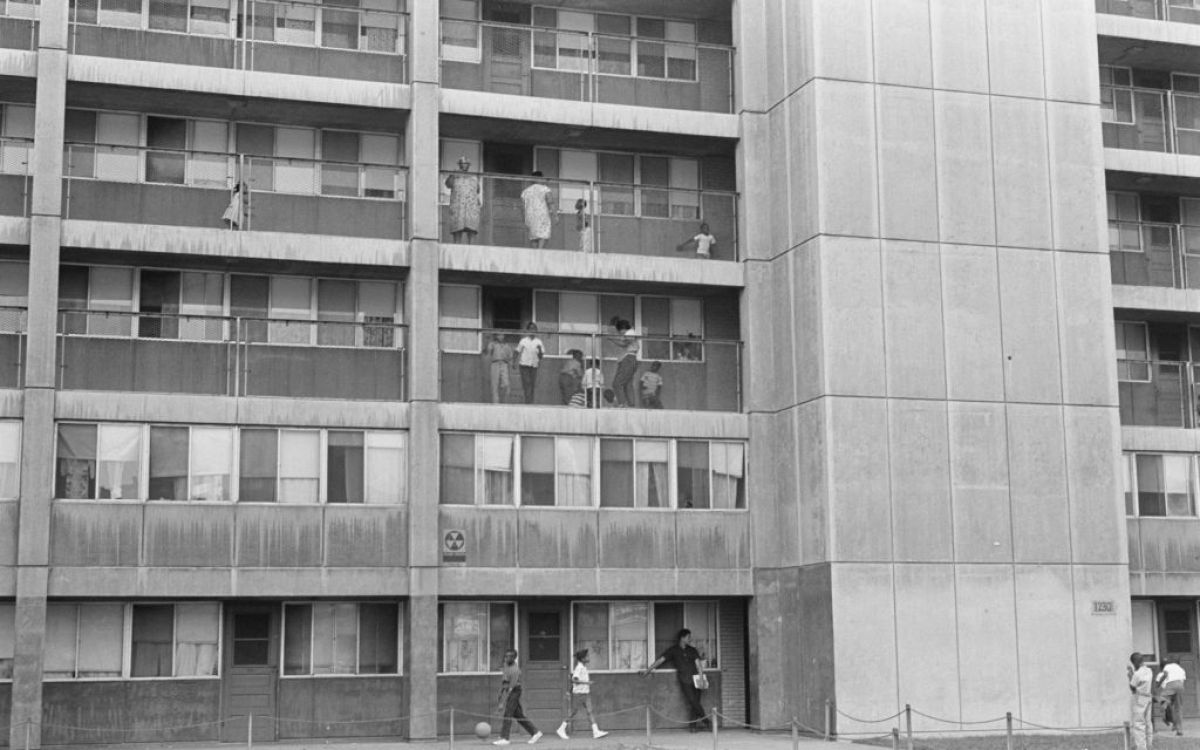Former child soldier gives stirring talk
Call him Ishmael.
But don’t call him part of a “lost generation.”
It’s a phrase that “I absolutely detest,” Ishmael Beah, a former child soldier in the civil war in Sierra Leone, told his audience at Harvard’s Kennedy School of Government March 14 at an event co-sponsored by the Carr Center for Human Rights Policy.
Author of a best-selling book, “A Long Way Gone: Memoirs of a Boy Soldier,” Beah, now a gently radiant man of 26, has become an outspoken international advocate for children affected by war. He has tirelessly carried the message that, however easy it is for desperate young people pressed into service as killers to lose their humanity, that humanity can be restored.
As Samantha Power, Anna Lindh Professor of Practice of Global Leadership and Public Policy at the Kennedy School, put it when she introduced him, Beah has become the “rock star” of the child-soldier issue. And it is a measure of the effect he has on audiences that Power, no stranger to heartbreak herself, had to take a moment to compose herself as she presented him to the audience.
The statistics are grim: an estimated 300,000 child soldiers around the world. The political context is often not encouraging: The wheels of international justice and human rights law turn slowly. And there is no magic formula for reclaiming a child caught up in the hell of war.
But, Beah said, “This issue is not hopeless. … I don’t want people to despair.”
Rather, he wants people to see his experience, and that of other young warriors who have been successfully reintegrated into society, as evidence of “the beauty of the human spirit and the resilience of children.”
Beah particularly stressed that the violence that consumed his native country in the 1990s was not peculiarly African. On the contrary, he cited the cultural underpinning of his own strong family upbringing as part of what helped him survive his ordeal. And he emphasized that in his country, it was not unusual for villages to take back into their midst even child warriors who had killed people in that village.
He cited a traditional proverb from his homeland, something that translates more or less as “There is no bush into which you can throw away a child.”
Beah was born in 1980. His parents and two brothers were killed in the brutal civil war that broke out when he was 11. At 13, he was recruited as a soldier, and fought for almost three years before UNICEF removed him from the army and placed him in a rehabilitation home. In 1998, he moved to New York City to live with an American family and finish high school.
He went on to study at Oberlin College in Ohio, from which he graduated with a degree in political science in 2004.
Throughout his time in college he carried on his international advocacy work. But he got to the point where “15 or 20 minutes on a United Nations panel was not enough time” to tell his story, he said. “And so I decided to write.”
Summoning up the painful memories was hard. But the strong public response to his book, particularly in the United States, has been “quite surprising,” he said.
The timing was right, Beah said, for a book on this painful subject. “I almost think people were waiting for someone who could personalize it, to show that these children are not a lost generation,” he said.
Jacqueline Bhabha, the Jeremiah Smith Jr. Lecturer in Law at Harvard Law School, executive director of the Harvard University Committee on Human Rights Studies, and an adjunct lecturer in public policy at the Kennedy School, interviewed Beah on his views of what contributes to children being pressed into military service. She offered three explanations — the changing nature of warfare, with lines between military and civilians blurred; the availability of arms lightweight enough for child soldiers to use; and the economic and political chaos of failed and failing states.
“I, sadly, think all of them apply,” Beah responded.
His long-term prescription for change is diplomacy to prevent war from happening at all. But for the near term he suggested:
n More work by governments and NGOs earlier in the course of a war to pull children out of armies rather than waiting for hostilities to end
n International efforts to end arms sales
n Efforts to make U.S. military aid to other countries conditional on their certifying that they have no child soldiers. “That would shape up the behavior of a lot of countries,” Beah said.
One of the questions from the audience was posed by a Kennedy School student who had attended Oberlin when Beah was there. She asked him why he had been so reticent about his war experiences with his American friends.
“When I came to the U.S. I needed to be fully present in my new life,” he explained, adding that, “Hello, I’m Ishmael, the former child soldier” was not a good opening line.
Some of his new friends found out about his past when they became aware of his work with the United Nations. “And when they knew, I could tell that they knew.”
He was also asked what he thought the minimum military age should be. He said he would respond the same way a 5-year-old he had met in a camp had responded: “The right age to become a soldier is 100.”




